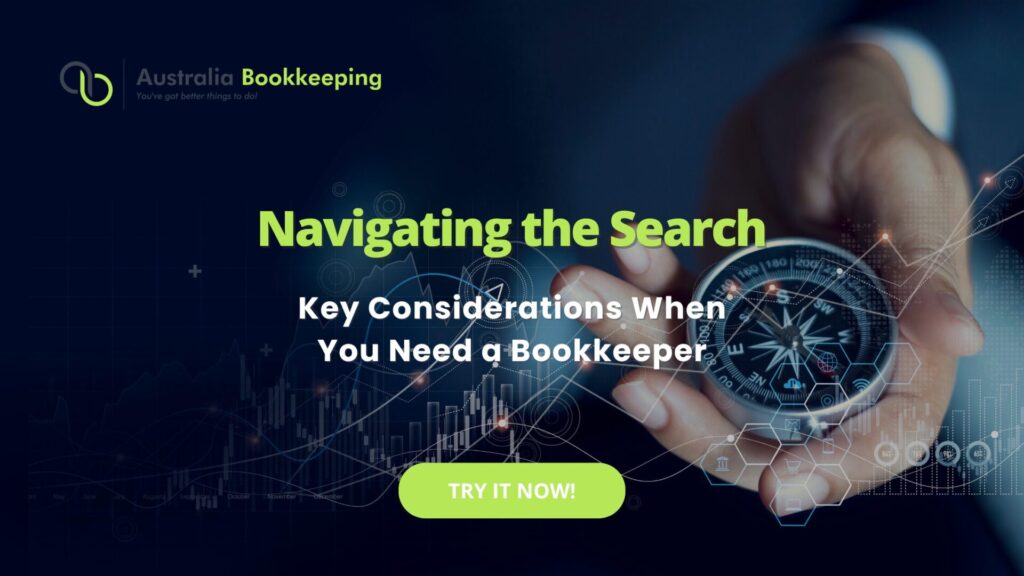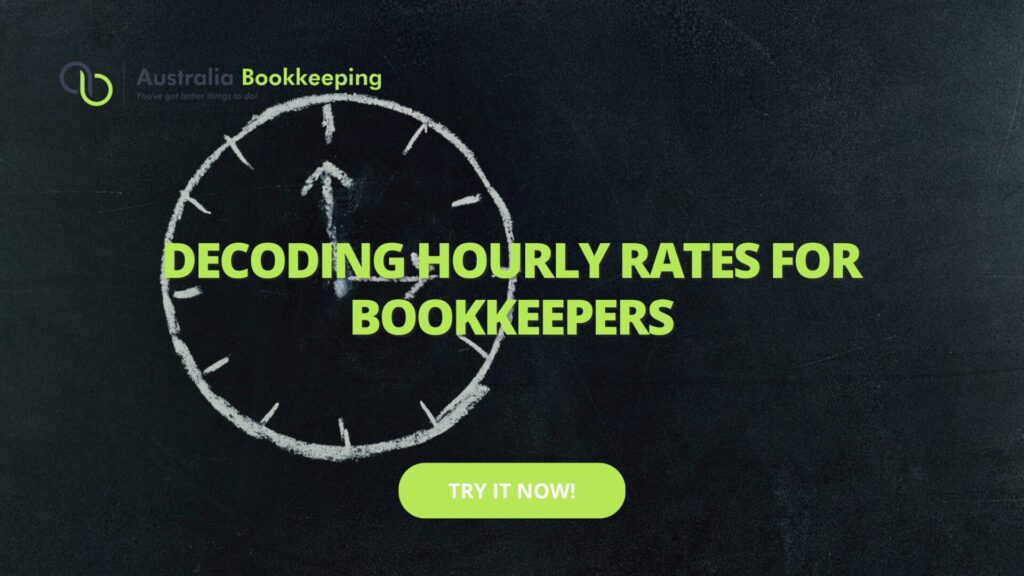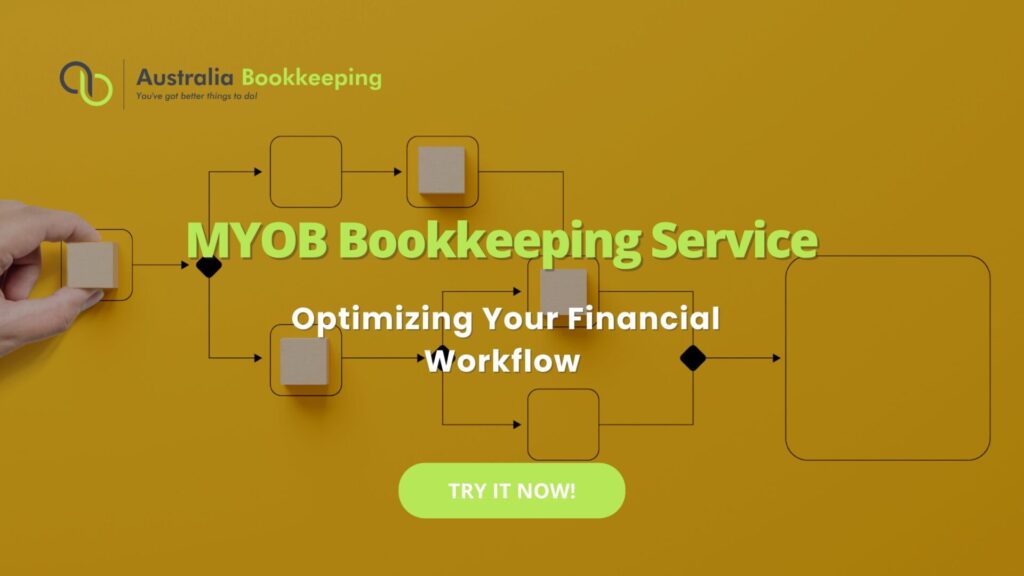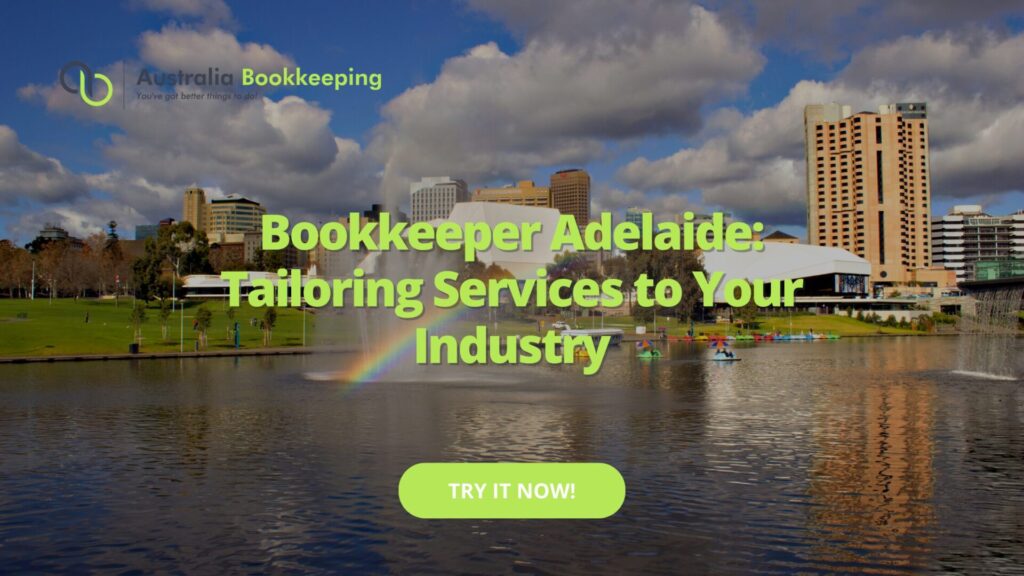10 Things to Consider When You Need a Bookkeeper
Navigating the Search: Key Considerations When You Need a Bookkeeper 1. Introduction: The importance of finding a reliable bookkeeper As a small business owner, one of the key decisions you will need to make is how to handle your bookkeeping and accounting needs. While some entrepreneurs choose to handle these tasks themselves, many find it more efficient and cost-effective to hire a professional bookkeeper. But with so many options available, how do you navigate the search for the right bookkeeper for your small company? This article will discuss key considerations to keep in mind, including bookkeeping packages, hourly rates, and the benefits of outsourcing. Schedule a free call with the most reliable bookkeepers in Australia. Whether you’re just starting out or looking to streamline your financial processes, understanding the world of bookkeeping is crucial for the success of your business. 2. Understand your bookkeeping needs Before you start searching for a bookkeeper, it’s important to have a clear understanding of your bookkeeping needs. Take some time to evaluate your current financial processes and determine what tasks you want the bookkeeper to handle. Do you need someone to handle basic data entry and reconciliation, or are you also looking for assistance with financial analysis and reporting? Knowing your specific needs will not only help you find a bookkeeper with the right skills and experience, but it will also ensure that you hire someone who can provide the level of support your business requires. Additionally, understanding your bookkeeping needs will help you determine the appropriate bookkeeping package or hourly rate that aligns with your budget. By clarifying your bookkeeping needs upfront, you’ll be better prepared to find a bookkeeper who can effectively contribute to the success of your small business. 3. Look for qualifications and experience When searching for a bookkeeper, it is crucial to consider their qualifications and experience. Look for candidates who have relevant certifications such as Certified Public Bookkeeper (CPB) or Certified Bookkeeper (CB). These certifications ensure that the bookkeeper has undergone rigorous training and has the necessary knowledge to handle your financial needs. In addition to qualifications, experience is equally important. Find out how long the bookkeeper has been practicing and whether they have experience in your specific industry. A bookkeeper who is familiar with the nuances of your industry will be better equipped to handle your unique financial requirements. Don’t hesitate to ask for references and check their track record. Speaking to past clients can give you insights into the bookkeeper’s overall performance and reliability. Taking the time to thoroughly vet candidates for qualifications and experience will help you make an informed decision and find a bookkeeper who can efficiently manage your financial affairs. 4. Assess their knowledge of tax laws and regulations A crucial aspect to consider when searching for a bookkeeper is their knowledge of tax laws and regulations. As a business owner, it is essential to comply with all tax obligations and ensure accuracy in financial reporting. Therefore, finding a bookkeeper who understands the intricacies of tax laws specific to your industry is vital. Inquire about their familiarity with the tax guidelines relevant to your business. Ask them how they stay updated on changes and if they have experience in handling tax-related matters for businesses similar to yours. A bookkeeper who is knowledgeable when it comes to tax laws and regulations will not only help you avoid potential penalties but also maximize your deductions and ensure tax efficiency. Make sure to consider this factor when evaluating potential candidates for your bookkeeping needs. 5. Consider their communication and organization skills Another important factor to consider when choosing a bookkeeper is their communication and organization skills. Effective communication is crucial to ensure that you and your bookkeeper are on the same page when it comes to your financial transactions and reporting. Look for a bookkeeper who is proactive in keeping you informed about your financial situation and who can explain complex financial concepts in a clear and concise manner. Regular and open communication will help you make informed decisions for your business. Additionally, an organized bookkeeper can help streamline your financial processes and ensure that all your financial records are accurate and up to date. Ask potential bookkeepers about their systems and tools for organizing financial data and make sure they can provide you with reports and information in a timely manner. By considering their communication and organization skills, you can find a bookkeeper who will not only handle your financial matters efficiently but also keep you well-informed and organized throughout the process. 6. Evaluate their technology proficiency In today’s digital age, technology proficiency is essential for any professional, including bookkeepers. When evaluating potential bookkeepers, it is important to consider their proficiency in using accounting software, financial management tools, and other technology platforms. A bookkeeper who is well-versed in technology can help streamline your financial processes, automate certain tasks, and provide you with real-time access to your financial data. This can save you time and money, as well as provide you with valuable insights into your business’s financial health. Consider asking potential bookkeepers about the specific software and tools they are familiar with using. This could include popular accounting software like QuickBooks or Xero, as well as any industry-specific software or platforms that may be relevant to your business. Hiring a bookkeeper with technology proficiency can ensure that your financial information is efficiently managed and easily accessible, allowing you to make informed decisions for the future of your business. 7. Compare pricing and fee structure When searching for a bookkeeper, it’s crucial to carefully compare pricing and fee structures. While you want to find a bookkeeper who fits within your budget, it’s also important to ensure that you’re getting the value and expertise you need. Consider asking potential bookkeepers about their pricing models. Some bookkeepers may charge an hourly rate, while others may offer monthly or yearly packages. It’s important to understand what is included in their fees and any additional costs that may arise
10 Things to Consider When You Need a Bookkeeper Read More »











